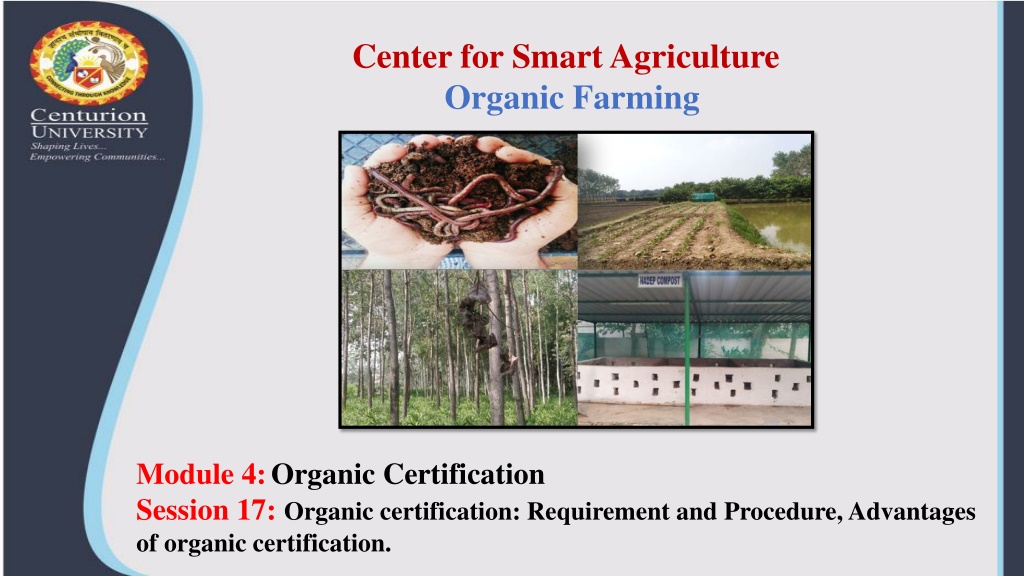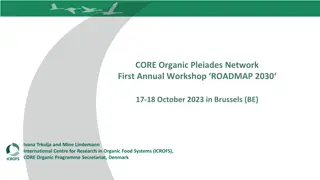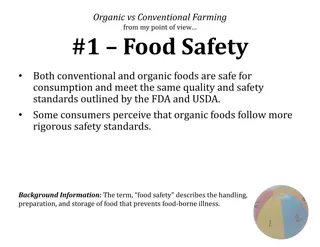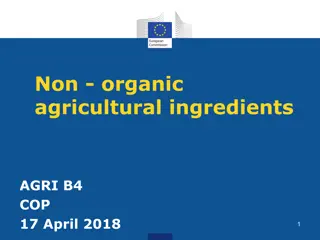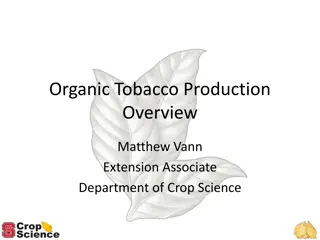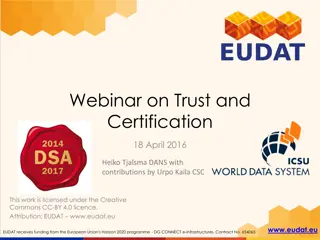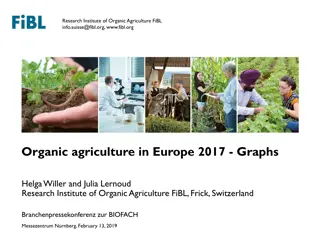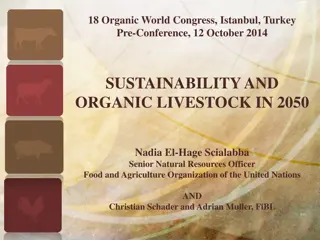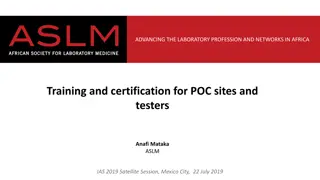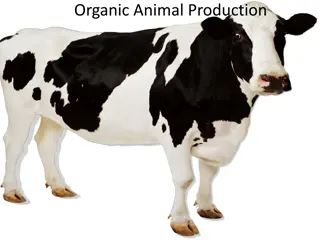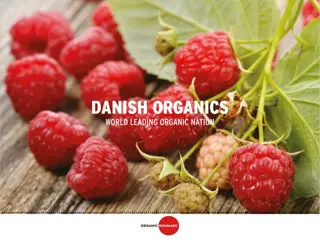Understanding Organic Certification and NPOP in India
Organic certification is crucial for ensuring the quality and authenticity of organic products. This involves adhering to strict production standards and undergoing periodic inspections. In India, the National Programme on Organic Production (NPOP) plays a significant role in certifying organic commodities through accredited agencies. NPOP certification focuses on process certification, reviewing various aspects of production to ensure compliance with organic standards. The certification procedure involves applying to the certification agency with detailed farm and process information.
Download Presentation

Please find below an Image/Link to download the presentation.
The content on the website is provided AS IS for your information and personal use only. It may not be sold, licensed, or shared on other websites without obtaining consent from the author. Download presentation by click this link. If you encounter any issues during the download, it is possible that the publisher has removed the file from their server.
E N D
Presentation Transcript
Center for Smart Agriculture Organic Farming Module 4:Organic Certification Session 17: Organic certification: Requirement and Procedure, Advantages of organic certification.
Organic certification involves a set of production standards for growing, storage, processing, packaging and shipping that include: Prohibition of synthetic chemical inputs (e.g. fertilizer, pesticides, hormones, antibiotics, food additives, etc) and genetically modified organisms; Use of farmland that has been free from chemicals for a number of years (often, two or more); Keeping detailed written production and sales records (audit trail); Maintaining strict physical separation of organic products from non- certified products; Undergoing periodic on-site inspections.
Purpose of certification: To assure quality and prevent fraud. For organic producers, certification identifies suppliers of products approved for use in certified operations. For consumers, "certified organic" serves as a product assurance, Certification is essentially aimed at regulating and facilitating the sale of organic products to consumers.
Third Party Organic certification systems in India National Programme on Organic Production (NPOP), launched during 2000 for farm and livestock certification for organic commodities was the first milestone for organic quality assurance system in the country. 29 Accredited certification agencies authorized under the programme are certifying organic producers.
NPOP certification is a system of process certification wherein an independent organization reviews entire production, processing, handling, storage and transport etc to ensure the compliance of organic standards The process typically includes comprehensive review of cultivation practices including: Land management, Usage of inputs, Use of machinery, Pest management and post harvest in crops, Rearing practices compatible to their natural behaviour, welfare of animals, Avoidance of synthetic feed additives and hormones Limited usage of allopathic drugs and antibiotics in animal products and processing and handling through document review and on-site physical inspection.
Certification Procedure in brief Application is made to the certification agency in the prescribed format with necessary farm and process details Screening of application by certification agency and if necessary further details/clarification sought Cost estimate comprising of certification charge, inspection charge, travel cost, reporting cost, laboratory charges etc is sent for acceptance Acceptance of cost by the grower/producer Signing of agreement between grower/producer and certification agency (Contd..)
Certification agency seeks cropping/production/cultivation/processing plan and supply a copy of the standards to the grower/producer to follow Certification agency raises an invoice and asks the producer payment of initial fee Grower/producer pays the fee Inspection schedule is worked out Inspection is carried out at one or more than one occasion (Contd ..)
If required unannounced inspection can also be done. In case of doubt, the inspection team can also draw plant/soil/raw material/input/product sample for laboratory analysis. Inspection report/(s) submitted to the certification committee Certification agency asks for final payment Final payment is made Certification is granted (Contd )
On grant of scope certificate Producer/operator applies for license for use of India Organic Logo Certification body grants the license for use of India Organic Logo Grower/producer releases the stock for sale with Certification Mark Reference: National Programme for Organic Production: A training Manual (2018). Agricultural and Processed Food Products Export Development Authority (APEDA). Ministry of Commerce and Industry, Government of India. https://apeda.gov.in/apedawebsite/organic/NPOP_Training_Manual_Englis h_E_Book.pdf
